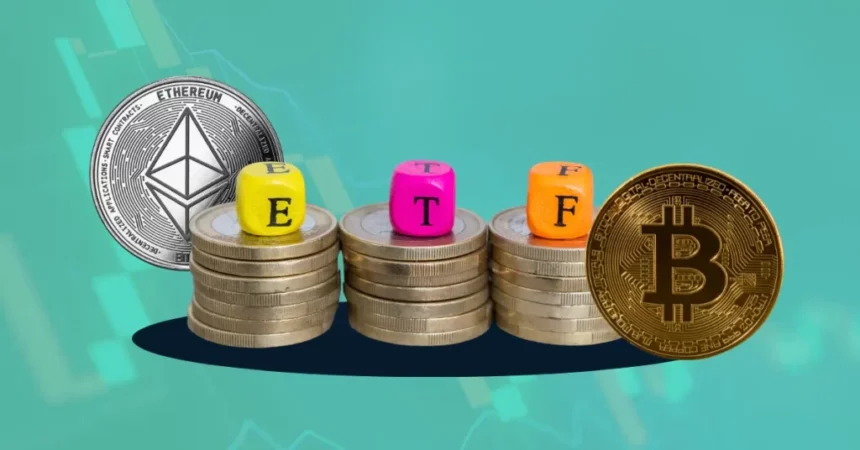Litecoin Exchange-Traded Funds (ETFs) have high approval chances. Thus, the market is humming with speculation, as analysts project. Often referred to as the “silver to Bitcoin’s gold,” this development could significantly impact Litecoin and potentially pave the way for broader institutional acceptance of cryptocurrencies. A Litecoin ETF has attracted much interest from traders, investors, and industry professionals as regulatory authorities struggle with the complexity of digital assets.
Growing Interest in Litecoin ETFs
Designed by Charlie Lee in 2011, Litecoin has long been among the most well-known cryptocurrencies. Famous for its quicker transaction speeds and lower fees than Bitcoin, Litecoin has found a niche as dependable and effective digital money. Nevertheless, despite its strong foundations in terms of market value and media coverage, Litecoin has sometimes been eclipsed by Bitcoin and Ethereum.
A Bitcoin ETF’s arrival may alter this dynamic. Traded on conventional stock markets, ETFs are investment instruments that track the price of an underlying asset—in this case, Litecoins. Both institutional investors and ordinary traders find them appealing since they give them access to the asset without requiring direct purchase or storage. There are various reasons for the rising curiosity about Litecoin ETFs. Second, a more friendly legislative climate has resulted from mainstream financial institutions’ growing adoption of cryptocurrencies. At last, Litecoin’s unique qualities—lower transaction fees and faster block-generating time—make it a tempting target for an ETF.
Regulatory Hurdles and Market Sentiment

Although a Litecoin ETF has bright future potential, major legislative obstacles must be removed. The Securities and Exchange Commission (SEC) in the United States has been wary of bitcoin ETFs. Citing market manipulation, liquidity, and investor protection issues, the SEC turned down various Bitcoin ETF ideas earlier. The terrain of regulations is changing, nevertheless. Gary Gensler’s election as the new SEC chairman has generated hopes for a more positive attitude regarding bitcoin ETFs.
Former MIT blockchain and digital currency lecturer Gensler is generally considered an informed and progressive regulator. If the required protections are in place, his leadership may open the path for Litecoin ETF approval. Furthermore, the market mood is very important for the approval process. In recent years, cryptocurrencies’ prices have surged to all-time highs before falling, displaying notable volatility. Regulators have been quite concerned about this volatility since they worry it will cause losses for ordinary investors.
Potential Impact on the Cryptocurrency Market
Approving a Litecoin ETF could have far-reaching implications for the cryptocurrency market. Firstly, it would provide a new avenue for institutional investors to gain exposure to Litecoin, potentially driving up demand and prices. However, the lack of regulated investment products has been a significant barrier to entry. Secondly, approving a Litecoin ETF could increase liquidity in the cryptocurrency market.
This increased liquidity could help reduce price volatility and make the market more attractive to retail and institutional investors. Thirdly, approving a Litecoin ETF could pave the way for other cryptocurrency ETFs. If the SEC adopts a Litecoin ETF, it could set a precedent for the approval of ETFs based on different cryptocurrencies, such as Ethereum, Ripple, and Bitcoin Cash. This could lead to new investment products, further legitimizing the cryptocurrency market and driving mainstream adoption.
Challenges and Risks
Litecoin ETFs carry significant risks and problems even if their possible advantages are substantial. The possibility of market manipulation raises one of the primary worries. Large players, also called “whales,” have easy access to manipulate the still relatively immature and unmonitored Bitcoin market. Significant price swings resulting from this could be harmful to ETF investors.
Regulatory changes raise still another issue. The fast changes in legislation in the bitcoin industry could affect the feasibility of ETFs. For instance, a significant drop in prices and adverse effects on ETF performance could result from a macro-regulatory body imposing tight limits on cryptocurrency trading. At last, there is a chance of technological problems. Blockchain technology—still in its early phases of development—forms the basis for cryptocurrencies.
Conclusion
Considering all factors, the potential introduction of a Litecoin ETF is a fascinating development for the Bitcoin space. Driven by the success of Bitcoin ETFs, the changing regulatory environment, and Litecoin’s unique qualities, analysts estimate great approval odds. If approved, a Litecoin ETF may revolutionize the Bitcoin market, create fresh prospects for institutional investors, boost liquidity, and open the path for other cryptocurrency ETFs. Nevertheless, investors should be informed of these investment products’ possible risks and difficulties.









